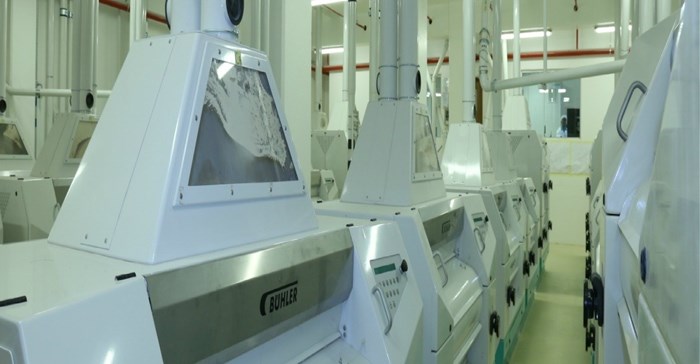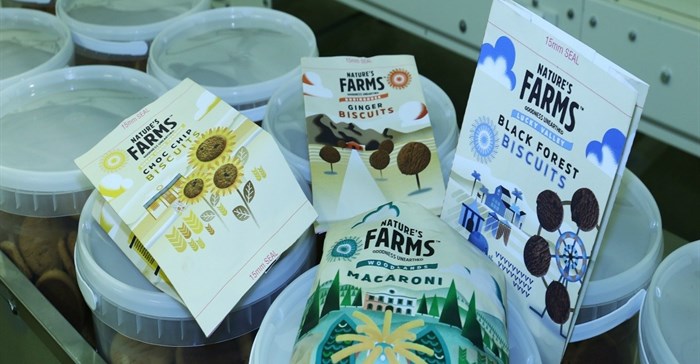
Top stories






More news


Marketing & Media
Ads are coming to AI. Does that really have to be such a bad thing?













“In addition, in emerging economies like South Africa, agriculture is the only sector capable of transforming remote rural communities by locating agribusinesses in those areas and, in the process, supporting the local farmers and developing local suppliers.
“In the past, agriculture played a part of that role by default simply because it was usually a country’s largest employer and also because it provided essential products in the form of food. But farmers and agribusinesses rarely saw it as their direct responsibility to proactively put strategies in place to benefit the community or, indeed, the economy.
“Today, agriculture stakeholders are deliberately using business skills to convert the industry into a decisive vehicle for social transformation. In that context, GWK, a public farmer-owned company based in the Northern Cape, is an important example of the basic principles that best embed sustainability in agriculture and, therefore, the community.”
GWK, an agribusiness involved in grain products, specialist crops and meat and auction services among others, opened its GWK Farm Foods factory in Modder River in April 2016. The R400 million wheat mill, pasta plant, and biscuit factory use wheat sourced locally to create bread and cake flours and other products marketed under the new Nature’s Farms brand. The wheat is recognised internationally as being of unusually high quality, having 9% more protein than the imported products from which South African wheat-based foods are typically manufactured. South Africa imports some 70% of its wheat.
“Obviously, the factory represents a major commitment to local farmers,” Hamman says. “More than that, it represents a vote of confidence in the rural community from which the factory draws its 100 employees and its services suppliers. The collaboration of the local authority in making an empowering facility such as the GWK Farm Foods factory possible in a location so far from major commercial centres is also a crucial factor.
“The factory, therefore, epitomises the inclusive approach to agriculture that we always advocate and support.”
The GWK Farm Foods facility was planned from the ground up with sustainability and environmental custodianship in mind. “Energy efficiency was a planning priority,” says Eddie Ueckermann, GWK Farm Foods executive manager. “For example, we used white roofs for temperature management and skylights for natural light. The flow of products in the wheat mill is gravitational, all our electrical motors are the most energy efficient available, and all electrical lights are LED and connected to motion sensors. Collectively, these technologies and approaches reduce the factory’s energy consumption by up to 25%.
The water used in the plant is cleaner when released back into the environment than it was when it entered the factory. A quarry on the site was modified into a dam for the irrigation of the gardens. Grey effluent and rainwater, as well as treated sewerage water, are collected in the dam.
The factory boasts the most advanced Buhler mill from Switzerland, while the Pavan pasta and Lazer biscuit plant imported from Italy are two of the best in Africa.

Outside of the factory walls, GWK supports the farmers who supply it by advising on sustainable agriculture practices, including soil management and irrigation scheduling, that are focused on optimising the use of natural resources. This collaboration ensures that GWK gets the best possible raw materials and that farmers have an assured off-take for their product.
“By innovating and exploiting intelligent technologies that reduce operating costs, minimise the factory’s impact on the environment, and make it highly efficient, GWK Farm Foods demonstrates that the business case for sustainability is very strong,” Hamman says. “By collaborating with its supplier farmers, GWK is assured of supply and quality and enables sustainability for its suppliers. The ripple effect of a sustainability-focused approach is almost limitless.”

GWK’s approach has also proved the benefit of responding rather than dictating to the end customer. “We ensured that we thoroughly understood the size of the category for pasta and what needed to be done from a product development point of view,” says GWK managing director, Pieter Spies. “For biscuits, we made absolutely sure that we have the right flavours, cutting-edge innovation, and the best taste profiles. For our wheat flour, understanding the results required for the baker was pivotal in all our planning.”
GWK’s in-depth research into consumer preferences had a direct impact on its choice of technology for the factory. It also assured the company of a ready and growing market for its output and, as a consequence, of an early return on its investment in best of breed technology. In addition, GWK’s market research has reduced its cost of marketing because consumers are actively seeking out products that are socially and environmentally responsible. “In other words, GWK is taking full advantage of the recent shifts in agriculture that have made it a demand pulled service industry,” Hamman says.
One of the primary consumer requirements GWK Farm Foods fulfills is knowledge of the origin of the product. Its products are named for the farms from which their raw materials are sourced, clearly demonstrating their local origin.
GWK is also partnering with other South African FMCG players in the development of agricultural products tailored to their individual needs. GWK works closely with its farmer-shareholders and maintains these important relationships which contribute to the food production value chains of multinational FMCG partners. Examples include ground nuts and durum wheat. This is another way in which GWK’s origin on the farm comes to life.

For Hamman, GWK’s approach also illustrates the commercial advantages of another sustainability principle advocated by the bank: that of exploiting skills outside of the traditional scope of the industry. “Agribusinesses used to be run by agricultural specialists. But, as GWK has done in employing a managing director who has a track record in in the international fast moving consumer goods (FMCG) sector, agribusinesses are tapping into many different sector disciplines in order to extract optimal value from agricultural activity. They are also using innovation at all levels as a competitive advantage.”
Integration along the entire supply chain is another strategy vital to success in modern agriculture. “The more farmers participate financially up and down stream, the bigger their share of the consumer’s wallet,” Hamman says. “By the same token, their participation propagates synergies throughout the value chain, reducing costs and boosting efficiencies. This amplifies profitability in the chain while reducing shelf prices for consumers.
“And, as GWK has shown, a value chain that offers a comprehensive basket of products can obtain a much larger share of the market, adding the profound benefits of economies of scale to the sustainability scenario.”
Spies says that alignment with the correct partners up to and onto the shelf is absolutely crucial. “Because we offer premium products with an authentic origin, top-end retail is key. Our strategy of using the best technology and honouring the farmer’s produce has allowed us to take ownership of the value chain – including retail relationships - while keeping costs as low as possible.”
Inherently, as agricultural sustainability, as exemplified by companies like GWK, deepens, so it becomes attractive as an investment destination. As Hamman points out, agriculture is becoming a distinct asset class, capable of delivering significant returns to external investors and, thereby, increasing its ability to transform local and national economies.
“In the end, sustainability comes down to strong, agile, innovative, socially conscious, economically astute leadership of the agribusinesses that form the links in the value chain. Organisations like GWK are showing the profound transformative power of a value chain in which collaboration and integration drive success for all the individual players that have a stake in it. It really is a case of ‘all for one and one for all’.”